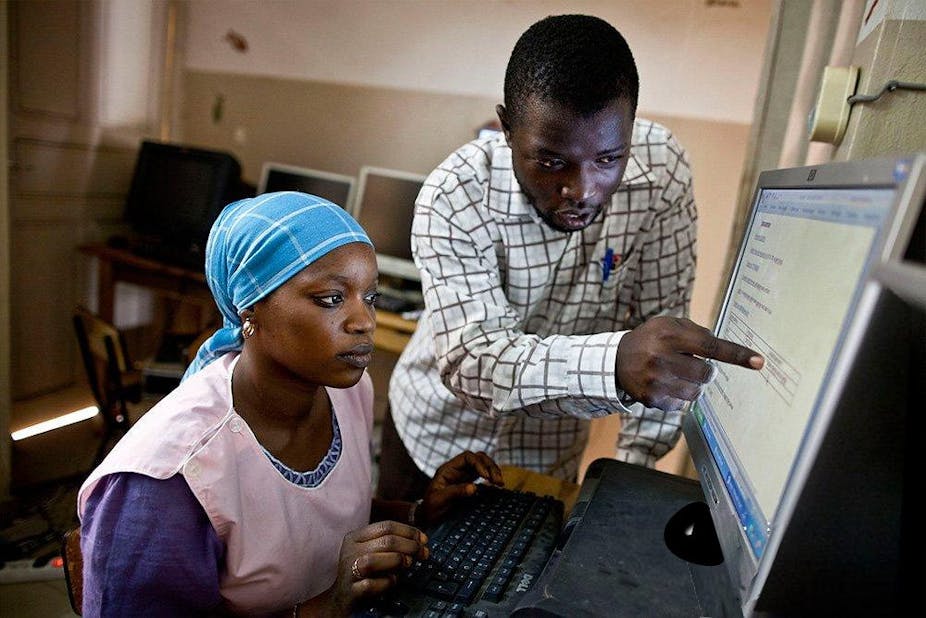Fifteen West African countries are a year away from the target date of their 10-year policy plan on science and technology dubbed ECOPOST. But they have made very little progress on the goals they set themselves.
The plan is an essential part of the sub region’s development blueprint labelled Vision 2020. This is a proposed road map for monetary integration, fostering public-private partnerships, improving governance and accelerating economic growth.
The integration plan envisages investment laws being harmonised. It also suggests the creation of a regional investment promotion agency. And all the 15 member states are urged to promote viable but efficient small and medium-sized enterprises. These would focus on technology and innovation as a path to increased productivity.
Yet this hasn’t been achieved. There are still challenges with the commercialisation of research findings, technology transfers, stronger university-industry ties and boosting indigenous knowledge.
I reviewed the science, technology and innovation policy plans among countries in the Economic Community of West African States (ECOWAS). I found that there appeared to be some political support in the design of policies. But not much else is in place.
West African member states have to take the necessary steps to develop national plans on science, innovation and technology. These will address the region’s economic and social challenges. This will be true irrespective of the creation of the proposed regional bloc.
What the research discovered
My review found that high-level political support seemed to be superficial and was in some cases totally absent. There were also variations with the establishment of institutional framework and science, technology and innovation plans.
Countries like Ghana and Nigeria had made inroads by carving a plan on science and technology. But the rest had employed an ad-hoc approach. Most have relied on a framework provided by the African Union and the ECOWAS as a major policy guide.
Another problem I identified was that government agencies charged with drawing up science, technology and innovation policy plans have consistently lacked the resources and enough power to push their agendas.
Moreover, recognition of the role of innovation to stimulate growth remains ambiguous. This explains why commitment levels remain low comparatively.
I also discovered that money was an issue. Finding funds to implement the policy on tax incentives is proving a daunting task because most countries are already burdened with the problem of low tax revenue.
This means that funds for science, technology and innovation aren’t available.
On top of this, venture capital is scarce or non-existent. It takes time for new inventions to come to fruition. Existing financial institutions don’t want to take the risk as many are already faced with liquidity and solvency challenges.
Political instability in the region is another hindrance to progress. Ivory Coast, Liberia, Sierra Leone, The Gambia, and Mali have all experienced instability.
But even stable states have failed. Take Ghana and Nigeria which have had instances where new governments have overlooked policies initiated by its predecessors.
Then there is education. Higher education institutions have mainly focused on teaching basic-science research which has a weak link to private enterprises. And institutions that were established from the outset to be the incubating grounds for entrepreneurs and inventors have taken to offering social science and business related programmes.
Examples include, the University of Science and Technology of Bamako in Mali, Africa Higher School of Information Technology and Communication in Ivory Coast, Kwame Nkrumah University of Science and Technology in Ghana and the Federal University of Technology in Nigeria. All have diluted programmes by offering more arts and social sciences than its pure and applied science programmes.
I also discovered that coordination among public organisations and parastatals in the design and implementation of policies is weak. Government agencies often elaborate their strategies but are not fully integrated and coordinated. This leads to unnecessary competition among these institutions.
Dealing with these dilemmas
Provision must be made for national evaluation and data sets to augment what is enshrined in the policy brief under the ECOPOST initiative. The success of this approach may be contingent on the sub-region being able to evolve specific tools for monitoring and assessing policies among member states.
Alternative sources of financing policies ought to be reconsidered. Tax incentives and havens for technology related businesses and building of entrepreneurial incubation points on innovation ought to be given priority. These will augment already existing initiatives such as export-led instruments.
In addition, governments in the region should partner with financial institutions to give priority to enterprises that are into product innovation, such as software or even IT related. And lastly, rolling out comprehensive universal education to secondary level across all vocational training centres could ignite and promote innovation and the entrepreneurial spirit.

